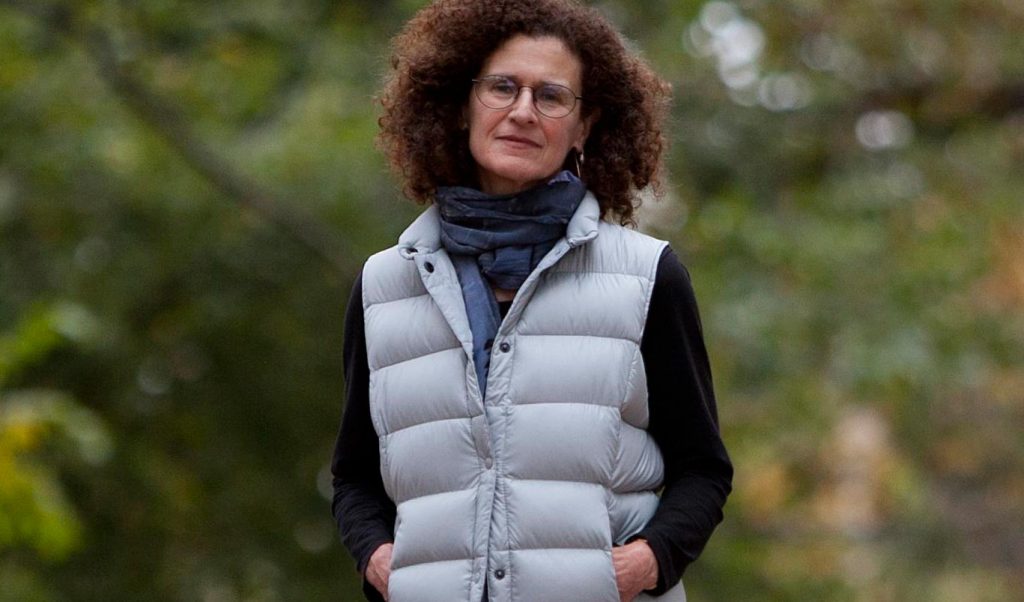“Emit and Edit,” by Heather McHugh, appeared as the Introduction to MQR 57:4, a special issue dedicated to caregiving. McHugh served as the issue’s guest editor.
My heart and hand are oftener at odds than I’d expect.
Honored to be asked to serve as guest editor for this caregiving issue of MQR, I soon discovered that the editing streak in me did not always conform with the caregiving streak.
For forty years by hand I’ve taught the arts of editing, and practiced editing to teach.
But my heart balks at saying no to anyone’s attempt to overcome (with words) the failure of words themselves adequately to comprehend our ranges of occasion and emotion.
There were hundreds of submissions for this issue, each moving in a different way. Swimming? Waving? Drowning? William Carlos Williams’ poem “The Right of Way” brings all editorial circumstance into perspective, in its own way:
The Right of Way
In passing with my mind
on nothing in the world
but the right of way
I enjoy on the road by
virtue of the law—
I saw
an elderly man who
smiled and looked away
to the north past a house—
a woman in blue
who was laughing and
leaning forward to look up
into the man’s half
averted face
and a boy of eight who was
looking at the middle of
the man’s belly
at a watchchain—
The supreme importance
of this nameless spectacle
sped me by them
without a word—
Why bother where I went?
for I went spinning on the
four wheels of my car
along the wet road until
I saw a girl with one leg
over the rail of a balcony
In this poem’s paces and destinations it becomes clear what the difference may be between a bypassing sensibility, weaving mere gestural glimpses into stories of human connection, and one that pauses to investigate a more abiding human ambiguity.
The girl with one leg may not have another leg — and Williams after all was a physician — is she a house call? Did he SEE her over a railing, or was the leg over a railing? Was she two-legged, but dangling one over a railing in a come-on? Is it a house call or a red-light district? A house call IN a red-light district?
All we know, we know by the structure of the language — because the storymaker’s yarn goes “spinning on … until” the moment that he sees that girl. And then the poem’s racket has to come to a halt before the calling. Whatever else the nature of the encounter is, it is an encounter that has to stop its vehicle to investigate its avocation or its activation; has to halt its careless hurtling, to unfold into a real relation, not slide by on a blur of glimpse and type.
It’s not just we the readers who can’t know what’s going to happen next; neither (in a sense) can the writer know that. The commitment (to surprise, and nothing more foreknown, or nothing more prescriptive) is what brings a piece alive, and makes it matter.
The danger for all human media and politics lies precisely in this poetic transaction: they must be more willing to inquire than to compel; more interested in peculiarity than in power; more committed to discovery than to preconception or meme.
*
In offering you this one quirky selection of poems and stories from among the many submitted for the MQR caregiving issue, I’ll add at the outset here only a few more words that can never fully explain themselves.
*
Whenever I think I’m jumping into what would seem an easy pool to read, I find myself waylaid by currents in the streams of reference and referents. Sometimes just two words can trouble all my preconceptions. Often patterns emerge from syntaxes, or letters glow to show the way.
When I think I’ll be directed by a raft of theoretical discernments, I find my sensual allegiances floating elsewhere. In this collection of offerings I was drawn by (never driven to) the eloquence of something barely intelligible: Voices muffled, or submerged, displaced.
We mean to stave off or to frame away the uncontainable (das ungemesse, Rilke says) but that fundamental measurelessness of existence will defeat our ends and break our hearts by breaking OUT of them, demolishing securities and sentences.
Lines are broken, and the moment turns momentous: the present suddenly outraces prefaces, and flames consume the frame.
*
Among the writers we’ve assembled here you’ll find redemptive rhetorics of weather, decipherable stars, children who don’t speak for years, parents who can speak no longer, people calling people animals, signs of disappearance, a word that’s given, then is folded like a map to secret places, some “small speakings,” and several foreign languages.
I’m moved to quote from “Notes on Dignity” by DeWitt Henry (published in Michigan Quarterly Review online) — whose history as founding editor of Ploughshares has earned a whole literary community’s enduring respect:
Is dignity a right? The right to be valued? To be clothed, fed, and sheltered? To health? To birth? The right to choose?
To some dignity seems a luxury, secondary to comfort or survival….
Can death be dignified? And for whom—the person dying, or the living who witness and endure the loss, reflecting on their own turns to come?
These questions seem the grounds for an ethics, but not an ethics it is easy to reduce. It bespeaks the unassessable — or perhaps more generally, the unknowable, itself the grounds for so much philosophical unease.
Perhaps we’ll all do better than we think, as ultimata overcome us. Maybe all our dread arises from distortions in our own and mortal framing, or presumptions in our mental future tense. Meanwhile caregivers don’t have a moment to reflect.
The meaning of our mortal premises (down into which all people disappear even more reliably than they are concocted from it) is incommunicable. Each of us alone attempts to process versions of it. And even bigger gulfs than those between geophysical or cultural realms are those between the experiences of any two (the two closest!) human beings.
And yet, for all of that, mute gestures matter: That girl may be about to jump. (If so, what the writer’s about has to change, in response). Sympathy is less a one-way gift than it is a serious exchange.
A hand is given, when you take a hand.
Image: Detail of painting from Lori Racicot series, “Where the Hell Did My Memory Go?”


